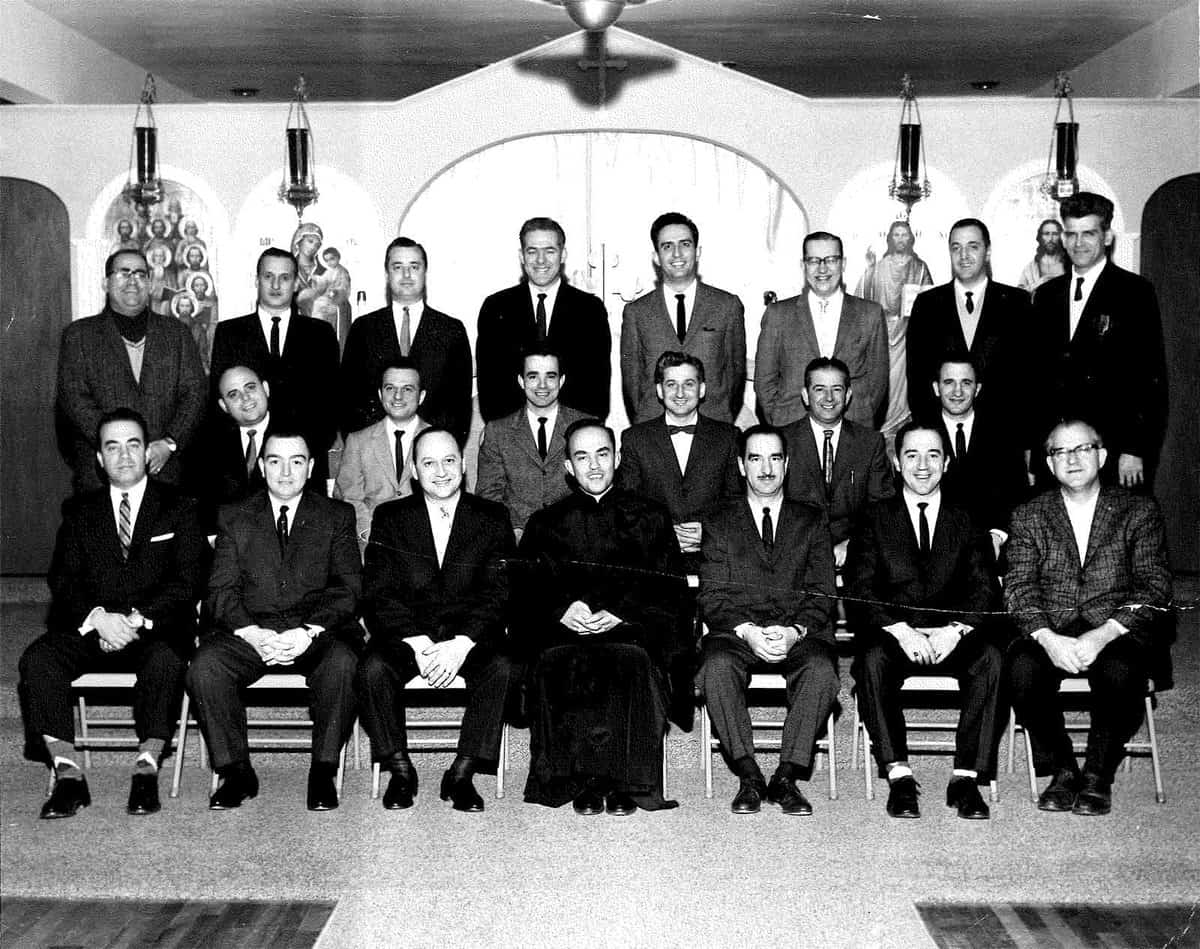Parish History
Construction on the Holy Apostles building began on June 6, 1964, and the first Divine Liturgy in the completed building was celebrated on Sunday, June 27, 1965. One distinguishing feature of Holy Apostles is the beautiful and colorful mosaic iconography that complements and contrasts the dark brick and rich wood of the church's interior.
On July 12, 1959, fifty families came together to celebrate the Divine Liturgy in the George F. Nixon Elementary School's gymnasium in Westchester, Illinois. They were led by a young priest who had just returned to Chicago from his first assignment in Pittsfield, Massachusetts—Father Bill Chiganos of blessed memory. These men, women, and children stood together as one body of Christ, believing in their vision to establish a Greek Orthodox parish that could serve the Western suburbs' spiritual needs. They grew to over 280 families, who in 1961 came together and raised enough funds to purchase the five acres of land that Holy Apostles now stands upon.
On June 1, 1975, Archbishop Iakovos of blessed memory consecrated Holy Apostles Greek Orthodox Church in a service filled with God's grace, mystery, and beauty. Today's parish has over 700 stewards who offer their time, talents and treasures to the Lord!
Our parish builds upon its founding principles and supports a predominantly English-speaking Christ-centered community with Orthodox values. We deeply cherish religious education, service through our many ministries, love of brothers and sisters in Christ, and active participation in the sacramental life. We would love for you to join our Holy Apostles family. All are welcome!

